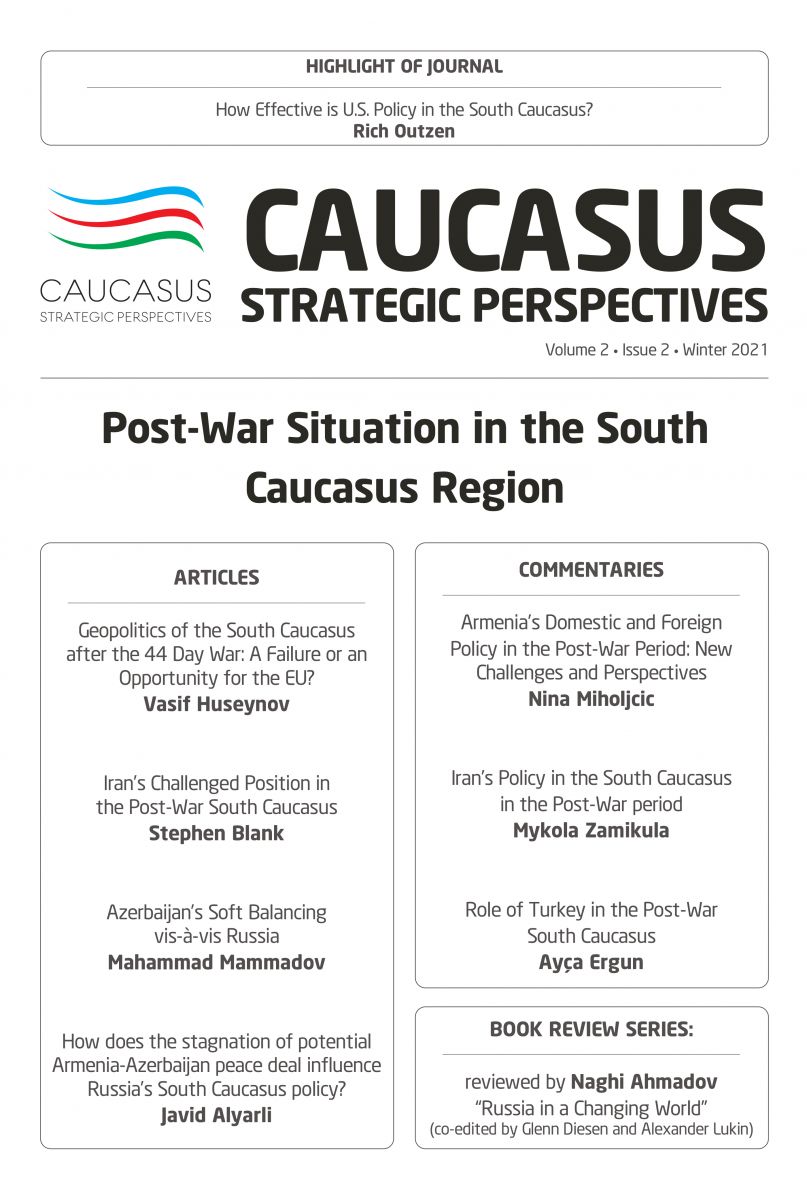Armenia’s Domestic and Foreign Policy in the Post-War Period: New Challenges and Perspectives
This article explores the changes in Armenia’s domestic policy after the Second Karabakh War at the political, social and economic levels, and the impact of such changes on Armenia’s foreign policy, especially with regard to its relationship with Azerbaijan. It further examines the perspective of post-conflict Armenian domestic politics and analyses prospects for reforming Armenia’s foreign policy with the aim of stabilizing the contested relationship with neighbouring Azerbaijan. After the conflict, Armenia has experienced serious political turmoil that affected not only domestic socio-economic conditions but also the country’s strategic position in the South Caucasus. Armenian dissatisfaction with the trilateral statement signed on 10 November 2020 led the country to a political crisis and early parliamentary elections that have brought new challenges for Armenia’s domestic politics. With the balance of power in the region shifting in favour of Azerbaijan, Armenia’s foreign policy has been challenged, which brings into focus the need for analysing the interaction of the country’s foreign and domestic policies owing to their implicitly intertwined relationship. In the post-war period, Armenia has experienced critical phases that have opened spaces for considerable change and reform in its domestic policy, but these have not, however, brought a significant response from the political leadership or influenced the foreign policy of the country in a substantial way.
Latest news
- 12/27/2024 Call for Submissions-Caucasus Strategic Perspectives, Volume 6, Issue 1, Summer 2025 678 views
Popular articles
- 07/18/2022 The Russia–Ukraine War: Perspective of Azerbaijan 4345 views
- 10/14/2020 The Non-Aligned Movement: In Pursuit of Validity and Relevance in the Contemporary Global Order 3320 views
- 10/14/2020 Vicious Circle of the South Caucasus: Intra-Regional Conflicts and Geopolitical Heterogeneity 3296 views
- 10/14/2020 Relevance of Non-Alignment for Azerbaijan’s Foreign and Security Policy 3025 views





